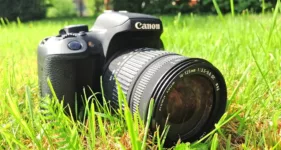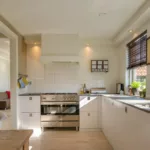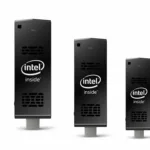It turns out that you have had a good time experimenting in the complex worlds of photography with a compact camera and now you want to go further and buy a dSLR camera. The problem is that you’re not sure what the first step is. Do not worry, that is completely normal. The truth is that among so many options in the market it is very easy to go crazy asking ourselves again and again what the best option is. What good is this to me?, What things have to be considered? All that without mentioning how complicated and terrifying the DSLRs is. Therefore, to help you choose the ideal camera for you, here are five tips to buy your first SLR camera.
The first thing: what is an SLR and what is there to know about it?
DSLR (digital single lens reflex in English) is a camera that uses a mirror in its internal system to allow the photographer to observe what he is capturing through a viewfinder. They are more robust than compact cameras and, unlike them; they give us the possibility to change the lens. The latter is one of the main reasons why we decided to make a leap to the universe of DSLR.
In addition, an SLR opens a lot of doors because they have larger sensors, includes a viewer in addition to the LCD screen and gives us more control over the image.
There are several “levels” of DSLR. You can find options for amateurs, semi-professionals and professionals. What make them different from each other, apart from the price, are the functions they offer and the complexity in the use of the camera. In your case, that you are looking for a first option, you should opt for some simple, for beginners. You will need a DSLR that, above all things, is easy to understand and manipulate.
Now, something that is important to highlight is that, although a DSLR offers higher image quality, which does not mean you need one to make better photographs. Your first SLR should be another step in your life as a photographer because you will learn more things with it and will encourage you to try more and better equipment. However, the photos are made by you, not the camera. If you really want to move forward, you should put in a lot of effort and practice constantly to grow. The equipment you use is not going to make you better; it’s all about knowing and knowing how to use your resources.
Then, before continuing, think how you would take an SLR and ask yourself if you really need one. If the answer is yes, read on!
Tips for buying your first digital SLR
1. Choose the brand that best suits you
First of all, let’s start with the idea that all manufacturers offer good quality products. Do not go crazy trying to decide which brand is better because this depends on what you need and prefer.
However, the ideal is that you go for one of the big brands (Canon or Nikon) because they are the ones that offer more variety and have more recognition, trajectory and presence than other smaller names.
Now, how to know which brand to choose? You should evaluate the catalog of the ones you are interested in to find out what lenses and other accessories are available. Why? Because depending on the intentions you have, you will need tools that must be compatible with your camera. Do not forget that once you go by a brand there is no turning back. Therefore, it is vital that you think about what areas you would like to play and how one alternative can serve you more than another (depending on the variety of objectives, the service in your country, among other factors). To be on the safer side get a perspective on best dslr cameras by the choice or any other credible source.
In short, it is not about one brand being better than another, but about what facilities you have with one and not with another, and so on. In addition, it is almost certain that you will love a brand if a camera catches your attention.
2. Think of sensor capabilities beyond megapixels
The number of megapixels is not a key factor when deciding which will be your first SLR. This feature is more valuable for professional photographers who must make very large prints of an image. Also, more megapixels do not necessarily imply better image quality.
On the other hand, the size of the sensor does have an important role in image quality. The bigger, the better (and more money too). You have to pay a lot of attention to this feature when buying a camera.
The most common sensor size among simple DSLRs is the APS-C (which is slightly smaller in Canon cameras than in the other brands that use this format). It is large enough to fit the needs you have in your beginnings with a dSLR.
Surely you’ve heard about full-frame sensors and their benefits. However, for now you should not think about this type of sensors, because they fit more for professionals. Cameras with sensors of this size require much more expensive focus and, in general, you will not be able to take full advantage of this equipment being a beginner.
Likewise, the ISO sensitivity is another factor that you must evaluate with great care. The rule is that the higher the maximum ISO that the camera supports, the better it will be for use in poorly lit spaces. A very high sensitivity will also generate more noise in the image. That is why it is essential that you investigate the performance of the camera and its noise reduction capacity.
3. Do not forget the accessories
In theory, if you’re looking for your first SLR, it’s because you plan to take a more serious path in photography. Therefore, you should consider that after your camera you will have to buy objectives and other important accessories.
The lenses that complement your DSLR will be the ones that will truly help you achieve the highest image quality and will satisfy your needs as a photographer. Remember what we mentioned about brands, because a Nikon lens cannot be mounted on a Canon, and vice versa.
Then, when you’re looking for a camera, do not forget what you’re looking for (your goals and intentions) and consider what accessories are important to you. You can choose a kit that includes the camera, some basic zoom lens (in addition to the standard, which is usually 18-55mm), a bag to carry your camera and / or other fundamental elements such as SD cards, tripods or extra batteries. So you will start to build your photographic arsenal.
Previously, in 3lentes we made a list of indispensable accessories that every photographer should have. You can take a look here to have a clearer idea of
what you will need in the near future.
4. Set a budget
Having a budget is important in the search for your first SLR. By knowing how much you plan to spend on your camera, you can reduce the countless options that are there for you.
However, you should consider certain factors. For example, if you have a lot of money available to spend on your computer, instead of investing in the most expensive DSLR on the market, use that money to buy accessories or another objective (lenses can often cost you more than the body). This has to do with the same thing that we mentioned above: there are SLR cameras more complex than others. It does not make sense to spend exaggerated amounts of money on a computer that is not designed for you. Also, do not forget that the body of the camera is a first investment; if you really want to learn more, you should think about what tools you need to exploit the full potential of your SLR.
Fortunately, as you will be starting in this world, the options that best suit your level are the simplest and most economical. Depending on the characteristics of the camera, you must be prepared to spend between 400 and 800 dollars.
Use the criteria we mentioned a few lines ago to make a selection of the best alternatives. Also, consider how old the camera is, as the technology advances quickly and you do not want to stay too far behind with an old sensor. Also think about the functions that the team has because this has an important weight in the final cost. Do you need wifi? Rotating screen? Touch screen? How light is it to travel? Ask yourself everything and analyze what qualities will be really useful to you.
5. Investigate everything you can about the camera
If you already found an option that you really like, look for all the information you can about it. Your first SLR must meet minimum requirements according to your intentions; it must fit you and what you want. Again, think about what you need and what plans you have in the future, because that is fundamental when choosing the ideal camera.
Then, look for reviews on the DSLR that you are interested in and pay special attention to the comments and opinions of the users on the internet. What’s more, if you have the opportunity, do not hesitate to consult an experienced photographer if you want a more “solid” recommendation.
The handling of the camera, the shooting modes, the ability of noise reduction, the maximum shutter speed, the quality of the sensor; all these factors are very important and you should invest a good time thoroughly investigating the performance of the camera to confirm that it is a quality team that is consistent with your level and expectations.
To End…
The search for your first SLR is an exciting way but full of questions. Do not go crazy in the process; little by little you will realize that it is simpler than you thought. Remember that the basis of everything are your needs and, again, ask a professional for help if you want to know what someone with more experience thinks than you.
Follow these little tips and encourage yourself to be part of the world of DSLR.








